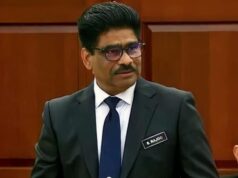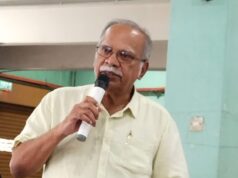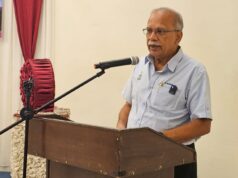

During Abdullah’s five-year tenure as prime minister, Mahathir had launched an unrelenting wave of vitriolic salvos against his handpicked successor whom he branded as incompetent.
Under the influence of his ambitious son-in-law, Abdullah, who was meant to be a seat warmer in the wake of the controversy surrounding the sacking of Anwar Ibrahim, started formulating grand plans of his own, much to the chagrin of Mahathir.
Fearful that his legacy would be dismantled and his cronies sidelined, a bitter Mahathir had even quit Umno Baru, the party which he founded in 1987 following the old Umno’s de-registration.
Mahathir’s antics in the run up to the 2008 polls had ripped Umno apart and contributed to BN’s dismal performance.
His detractors believe that Mahathir, who ruled with an iron fist for more than two decades, suffers from megalomania and considers himself to be Malaysia’s greatest boon.
And while his craftiness in statecraft is indisputable, critics however consider the 87-year-old former premier to be the nation’s greatest bane.
His departure from power was celebrated by the voters in the 2004 election, which saw Abdullah securing BN’s biggest ever mandate.
No other alternative
With Abdullah out of the picture, Mahathir trained his crosshairs on Najib. It is an open secret that he disagreed with the new prime minister’s ‘soft approach’.


Speculation was rife that Mahathir was backing Umno No 2 Muhyiddin Yassin.
And when BN performed even worse in this polls compared to its previous debacle, observers expected the ‘Double M’ juggernaut to steamroll Najib.
However, speaking in Tokyo over the weekend, Mahathir said that BN had no choice but to continue backing the incumbent.
“I think the party will support him [Najib] because of a lack of an alternative,” he said, suggesting to those who read between the lines that he no longer saw Muhyiddin as a viable option.
Mahathir had also said that the results of the election showed that Malaysia had become more divided than unified.
“We are still striving to bring the races together,” he said, calling unity an “uphill task.”
“Because of this racial polarisation, Najib couldn’t get Chinese votes,” he added.
An ironic statement
Some observers find the above statement to be ironic since Mahathir was considered to be one of the chief causes of racial divisiveness in Malaysia.
He became the patron of Perkasa, an ultra Malay movement, whose leader Ibrahim Ali had called for the torching of bibles at an event in the presence of Mahathir.
The former premier, whose paternal roots are in India, had even questioned the granting of citizenship to the Chinese and Indians.
Malaysia’s first prime minister Tunku Abdul Rahman had once described Mahathir as suffering from an inferiority complex due to his Indian heritage.
“You know his grandfather came from India. His father is half Indian or three-quarters Indian. Then his father came to Alor Setar and married a Malay and so he is half or three-quarters Malay and one quarter Indian. But nevertheless, he has felt a certain, you know, as if they looked down on him.
“To overcome that inferiority complex, which as I told you before is the worst disease a man can have, you would do things you wouldn’t normally do,” Tunku had said.
The progressive elements in BN and Umno consider Mahathir to be a political liability and blame him for being one of the major factors behind the non-Malay voters’ disenchantment with the ruling coalition.










